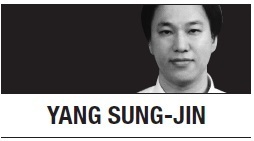Children’s books, especially those with lots of illustrations, are generally short in length. Despite this, the genre offers a treasure trove of creative imagination and wonderful pictures.
Sadly, some Korean bloggers are exploiting the genre in the name of sharing information and knowledge with their friends. Once they buy a picture book, they scan it through an app on their smartphones and upload the digital copies on their personal blogs or online communities. Since some picture books are just 20-30 pages, it does not take much time to scan all the pages and share the files on the internet.
Their posts are often labeled as book reviews, but they are clear copyright violations. Uploading digital copies of picture books and sharing them widely means authors and publishers instantly lose potential readers, resulting in smaller revenues and less opportunity to create such work in the future.
Worse, some thoughtless bloggers do not buy the picture books in the first place. They just borrow them from public libraries and make digital copies and upload many or all the pages.
Not only children’s books, but other titles are vulnerable to the copyright theft in the name of book reviews.
This is just the tip of the iceberg. A number of blogs both at home and abroad shamelessly upload copyrighted text, pictures, photos and even videos, without specifying where they got them. In some cases, they put their own names as the authors and put up a warning sign about copyright protection, including a threat of legal actions, even though they are the guilty parties.
The internet, smartphones, scanning apps and other digital tools make it extremely easy for content thieves to lift, modify and resell copyrighted materials, regardless of the original formats. As a result, more authors and creators are skeptical about sharing their work on digital platforms, in which copyright protection is lax or near-absent.
A high-profile author, who has published a host of books on management, said on his Facebook account that he was no longer updating his blog because he had discovered so many people making digital copies of his earlier writings and uploading them on their own blogs or online communities, often without a source or a direct link to the original post.
The possibility that someone’s work can be easily copied with their name removed is not only depressing but also damaging to the entire content industry.
The content industry itself is regarded as one of the most promising fields in South Korea’s economy, which is in dire need of a new growth engine. The country’s overall content industry was estimated to be worth 125.5 trillion won ($103 billion) in 2019. Content exports amounted to $10.3 billion and more than 660,000 were employed in the sector.
Digital content in particular is drawing attention from policymakers. For instance, the Ministry of Science and ICT has set aside 190 billion won for nurturing the digital content industry in 2020, reflecting a growing interest about the potential of digital content, led by future-oriented technologies such as virtual reality and augmented reality.
However, the Science Ministry earmarked only 110 million won, a small portion of the total promotion budget, for setting up what is called “fair trade environment,” mostly involving crackdowns on copyright violations.
What’s lacking is the long-term policy and budget for providing education programs to students as well as the general public, explaining why copyrighted material should be protected and why writing an online book review on a blog should not involve taking extensive photos of copyrighted texts.
There are so many people who misunderstand or exploit fair use when it comes to copyright, and major portals and blog services do not provide proper, preferably automated tools to block the uploading of copyrighted material.
Copyright protection, of course, should be balanced with the accumulation of copyright-free content on the internet, which is necessary for enriching and expanding the pool of information for the public.
Making more copyright-free and quality material available is indeed a lofty goal in the long term. At the same time, it should be recognized that creative works deserve full copyright protection, whether it is digital or analog. After all, children’s book authors and illustrators put a great deal of time and effort into producing every single page of their picture books. They should not be scanned and shared free of charge.
By Yang Sung-jin (
insight@heraldcorp.com)
Yang Sung-jin is the multimedia editor of The Korea Herald. -- Ed.







